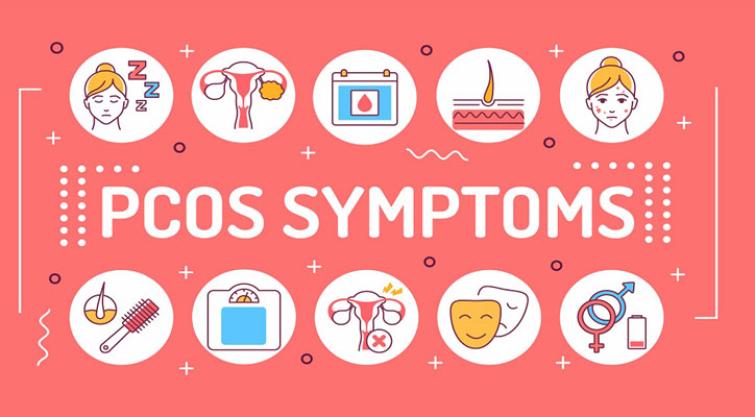By FnF Correspondent | PUBLISHED: 11, Jul 2025, 15:34 pm IST | UPDATED: 19, Jul 2025, 9:40 am IST

Polycystic Ovary Syndrome (PCOS) is a prevalent hormonal disorder that affects most women, causing infuriating symptoms such as irregular menses, hair loss, dark spots on the skin (like the underarms), acne, mood swings, and quick weight gain. Although these symptoms can be challenging to cope with, incorporating the right nutritional and lifestyle measures can significantly improve your life.
Here are seven nutritionist-approved tips that can assist you in managing your PCOS symptoms more effectively:
Follow a PCOS-Friendly Diet: Set low-glycaemic carbohydrates like oats, brown rice, and quinoa as the primary focus of your diet to stabilise blood sugar and manage insulin resistance. Incorporate lean proteins like eggs, tofu, and grilled chicken. Load up on fibre-rich vegetables (like spinach, broccoli, and bell peppers) and antioxidant-rich fruits (like berries and oranges) to balance hormones and combat inflammation.
Drink Herbal Teas: Certain herbal teas are beneficial. Spearmint tea is great for lowering excessive androgens and facial hair, whereas green tea increases insulin sensitivity. Ginger or dandelion tea relieves bloating and inflammation.
Attempt Seed Cycling: This is using some seeds at various stages of your menstrual cycle to help stimulate the natural hormone production. On Days 1-14, use flaxseeds and pumpkin seeds. On Days 15-28, change to sesame and sunflower seeds. This is thought to help stimulate natural oestrogen and progesterone levels.
Add an Iron-Boosting Juice: Fight fatigue, pale skin, hair loss, and dark spots by taking a daily raw beetroot, carrot, lemon, and slice of ginger juice. This energising mix is full of iron, vitamin A, and antioxidants.
Use Healing Herbs: Add healthy herbs to your diet to have a measurable impact. Cinnamon enhances blood sugar regulation, turmeric is a researched anti-inflammatory, and fenugreek seeds regulate insulin and enhance ovulation.
Begin the Right Supplements (under Monitoring): Certain supplements can also help in the control of PCOS. Vitamin D, zinc, omega-3s, and N-acetylcysteine (NAC) can combat inflammation, stabilise cycles, and support healthy skin and hair. Always get the OK from the healthcare provider before starting a new regimen of supplements.
Add Balanced Workouts: Variety in exercise is essential. Use 3 to 2 times of strength training per week to build muscle and metabolism. Add brisk walking or biking to burn belly fat, make insulin more sensitive, and balance hormones. Add yoga or Pilates too, which can lower cortisol levels, boost mood, and better digest food.

by : Priti Prakash
The year 2025 dawned with New Delhi gazing lovingly into the mirror of its own expectations. After a...